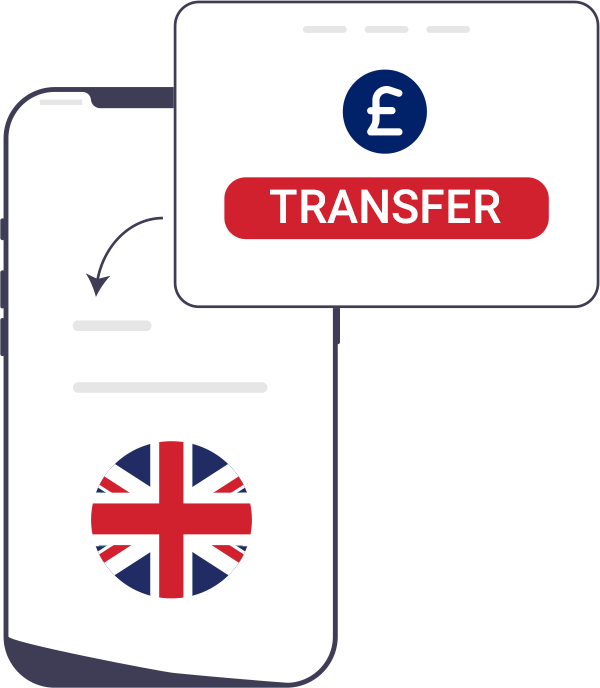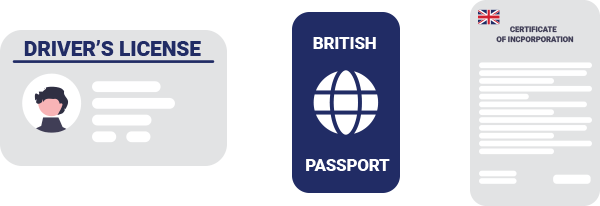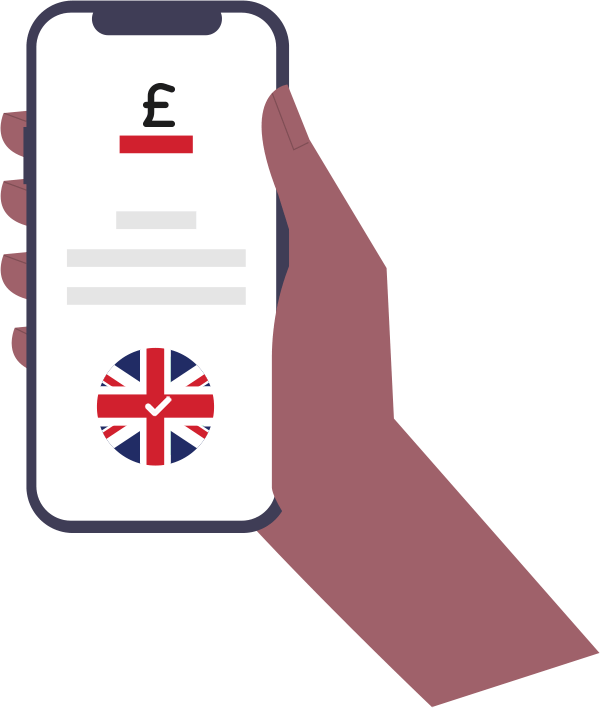An alternative to opening a business bank account in the UK
More topics It can be challenging to make cross-border payments in GBP if you’re based in a country with a different currency. For business people who work with suppliers or partners in the UK, or who have many customers there, every transaction can bring high fees, a long time-lag while you wait for funds to…

It can be challenging to make cross-border payments in GBP if you’re based in a country with a different currency. For business people who work with suppliers or partners in the UK, or who have many customers there, every transaction can bring high fees, a long time-lag while you wait for funds to clear, and annoyingly complicated procedures.
You might find yourself spending far too much time just dealing with payments every time you send a client an invoice, pay for a shipment, or pay local taxes. It would make things much simpler, and cost you much less money, if you just had a local business bank account. But opening a local business bank account in the UK can be awkward too.

How do you open a business bank account in the UK?
In the UK, anyone is legally allowed to open a bank account or a business bank account, even if you aren’t a resident or a citizen. But the UK also has some of the strictest anti-money laundering laws, so banks are very careful about who can open a bank account. As a result, it can be difficult to open a business bank account in the UK if you aren’t a citizen.
A number of well-known, traditional UK banks offer an international business account, including HSBC and Lloyds’ bank. You can open an account as long as your business is registered at Companies’ House in the UK.
In most cases, each of these banks require you to open the account in person, so they can verify your identity. You’ll need to bring:
- Proof of identity, like your passport
- Proof of address
- Your business’ registration number in the UK
- Your contact details
- Your business’ contact details

You’ll usually have to keep a minimum sum in the account all the time, which can be difficult for small cross-border businesses with a lot of cash movement. Banks generally charge monthly fees of between £6-£7.50 (approximately $8—$10), and transaction fees can still be high; for example, one bank charges an £8 transaction fee.
You could open a UK business account with one of the new digital, online-only banks. They usually don’t need to see proof of residency, and they prove your identity through an easy online check.
Revolut offers a debit card and mobile app for international businesses in 28 currencies, but you have to be registered in the EEA or Switzerland to be eligible. Tide also has a mobile app and GBP debit card for overseas businesses, but you’ll have to first register your business in the UK.
The Alternative: A Payoneer local GBP receiving account
Payoneer helps you receive payments from UK customers and clients, manage currencies, and pay contractors or suppliers in the UK. Instead of jumping through hoops to open a business account in a local UK bank, you could use Payoneer instead.
Payoneer offers a local receiving account that works just like a local UK bank account, so you can accept payments in GBP. Anyone you work with who has a UK bank account can use the same domestic bank transfer network to make a convenient local bank transfer to your Payoneer GBP receiving account.
It’s easy to set up your GBP business account with Payoneer. Just register with Payoneer and choose which local receiving accounts you need[1] — in . You’ll soon be able to view your account details and share them with clients on your invoices, through email, or over WhatsApp.

You can withdraw funds in over 150 different countries and currencies for a low, transparent fee, or you can hold them in your Payoneer account in GBP and use the funds to pay local taxes or global contractors either to their UK bank accounts or to the Payoneer account.
Enjoy the benefits of a business account in the UK
Having a UK business account can save you a lot of time, money, and aggravation. Platforms like Amazon and eBay prefer to pay out in local currency. You’ll be able to easily link it to the local platform to get your payments faster and without losing money on the currency exchange.
With your account, you can make and receive payments in GBP through local bank transfers or a credit or debit card. That way, funds clear a lot faster, and you won’t have to pay high currency conversion fees. Many bookkeeping tools connect with the local tax authorities to automatically pay taxes when they are due, but those services usually only work with a local currency account.

Other businesses and clients in the UK will also feel more trust towards you if you have a local bank account. People are nervous about identity theft and/or having business payments go missing if they use a foreign bank transfer service like SWIFT, and they don’t want to pay high fees to use their own credit cards for a foreign currency payment. If you have local UK account details, they’ll feel reassured about doing business with you.

An easier way to get a local UK business account
Payoneer helps you enjoy the benefits of a local business account in GBP without the hassle or cost of opening one at a local or online bank. The low cost foreign currency conversions, speedy international payments solution, and ability to receive payments in GBP makes it far simpler and less expensive to pay and get paid by clients, contractors, suppliers, and employees in the UK, wherever you or your business might be located.
[1] According to eligibility and current Payoneer offering
Related resources
Latest articles
-
Using an Employer of Record in Morocco
Looking for an Employer of Record in Morocco? See how Payoneer Workforce Management’s EOR services help simplify engaging talent in Morocco.
-
Using an Employer of Record in Jordan
Need an Employer of Record in Jordan? Here’s what you need to know about using an EOR in Jordan and how Payoneer Workforce Management can help you engage talent in Jordan.
-
Multi-currency Account: How It Helps Businesses Work With Customers Around the World
Optimize international payments for your IT, eCommerce, or SaaS business with a multicurrency account and easily receive funds from clients from abroad.
-
How to Open an Electronic Wallet: A Guide for Entrepreneurs and Businesses
How quickly and easily can you create an invoice with Payoneer? Learn how it helps businesses accept international payments, track them, and save time.
-
Wire Transfer in Ukraine: What Businesses Need to Know
Wire transfer in Ukraine for business, complete guide: how to make a transfer and receive an international Wire transfer on the account, terms and fees, tips, and examples.
-
Swift, ACH, or Wire: Which International Payment Method Should Businesses Choose?
SWIFT, ACH, or Wire for Ukrainian business: how they work, how they differ, which is cheaper and faster.
Disclaimer
The information in this article/on this page is intended for marketing and informational purposes only and does not constitute legal, financial, tax, or professional advice in any context. Payoneer and Payoneer Workforce Management are not liable for the accuracy, completeness or reliability of the information provided herein. Any opinions expressed are those of the individual author and may not reflect the views of Payoneer or Payoneer Workforce Management. All representations and warranties regarding the information presented are disclaimed. The information in this article/on this page reflects the details available at the time of publication. For the most up-to-date information, please consult a Payoneer and/or Payoneer Workforce Management representative or account executive.
Availability of cards and other products is subject to customer’s eligibility. Not all products are available in all jurisdictions in the same manner. Nothing herein should be understood as solicitation outside the jurisdiction where Payoneer Inc. or its affiliates is licensed to engage in payment services, unless permitted by applicable laws. Depending on or your eligibility, you may be offered the Corporate Purchasing Mastercard, issued by First Century Bank, N.A., under a license by Mastercard® and provided to you by Payoneer Inc., or the Payoneer Business Premium Debit Mastercard®, issued and provided from Ireland by Payoneer Europe Limited under a license by Mastercard®.
Skuad Pte Limited (a Payoneer group company) and its affiliates & subsidiaries provide EoR, AoR, and contractor management services.







